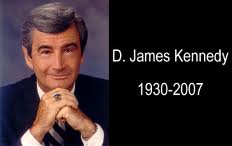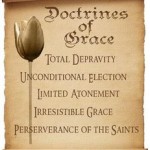Pastor Jim McClarty on this vitally important subject:
R. C. Sproul answers the question, “What is the doctrine of eternal security?” as follows:
When we speak of the doctrine of eternal security, we’re using a popular description of a classical doctrine that we call the perseverance of the saints. What it means is that once a person has become quickened by the Holy Spirit, born of the Spirit, and justified through faith in Christ and therefore placed in a state of salvation, that person will, in fact, never lose his salvation. That is a very controversial point within the context of historic Christianity.
There are many Christians who do not believe that once a person is in a state of grace, he will abide in that state of grace. The Roman Catholic Church, for example, historically teaches the distinction between venial and mortal sins. Mortal sin is defined as being mortal because it has the capacity to kill or to destroy the justifying grace that is in the soul, and such a sin makes it necessary for a person to be restored to justification through the sacrament of penance. Other Christian bodies also believe that it is possible for a Christian to lose his salvation.
Advocates of eternal security say that our salvation is secure once it is wrought through faith and that nothing shall separate us from the love of Christ. It is based on some passages in Scripture, such as Paul’s teaching in Philippians. It is said that, “He who has begun a good work in you will perfect it to the end.” Also, the Scriptures talk about the work of the Holy Spirit in the Christian life. Not only does the Spirit regenerate us, or quicken us, starting the whole process of Christian living, but as the Bible tells us, God gives to each Christian the sealing of the Holy Spirit and the earnest of the Holy Spirit. That term is a little bit obscure in everyday vocabulary, although when we buy a home the real estate agent might ask us to make a little down payment that we call earnest money. That is an economic phrase we use, and it is used in Scripture in that same way. An earnest was a down payment, an absolute guarantee that the balance would, in fact, be paid. When God the Holy Spirit puts a down payment on something, he doesn’t renege on the payments. God the Holy Spirit does not give you an earnest that becomes less than earnest. He’s deadly in earnest to finish what he has begun with you.
Also, the concept of being sealed by the Spirit draws from the ancient language of the signet ring of the emperor. When something was sealed and affixed with the imprimatur of the king or the owner, then it became his possession. I think we have to make this qualifier: If it were up to us, I don’t think any of us would persevere, and we would have very little to be secure about. However, the concept as I understand it biblically is that God promises that no one will snatch us out of the hands of Christ, that he will preserve us.

 John 6:34 Then they said to Him, “Lord, always give us this bread.” 35 Jesus said to them, “I am the bread of life; he who comes to Me will not hunger, and he who believes in Me will never thirst. 36 “But I said to you that you have seen Me, and yet do not believe. 37 “All that the Father gives Me will come to Me, and the one who comes to Me I will certainly not cast out. 38 “For I have come down from heaven, not to do My own will, but the will of Him who sent Me. 39 “This is the will of Him who sent Me, that of all that He has given Me I lose nothing, but raise it up on the last day.”
John 6:34 Then they said to Him, “Lord, always give us this bread.” 35 Jesus said to them, “I am the bread of life; he who comes to Me will not hunger, and he who believes in Me will never thirst. 36 “But I said to you that you have seen Me, and yet do not believe. 37 “All that the Father gives Me will come to Me, and the one who comes to Me I will certainly not cast out. 38 “For I have come down from heaven, not to do My own will, but the will of Him who sent Me. 39 “This is the will of Him who sent Me, that of all that He has given Me I lose nothing, but raise it up on the last day.” Dr. D. James Kennedy, was an American pastor, evangelist, and Christian broadcaster. He founded the Coral Ridge Presbyterian Church in Fort Lauderdale, Florida, where he was senior pastor from 1960 until his death in 2007. Kennedy also founded Evangelism Explosion International, Coral Ridge Ministries, the Westminster Academy in Ft. Lauderdale, the Knox Theological Seminary, and the Center for Reclaiming America for Christ.
Dr. D. James Kennedy, was an American pastor, evangelist, and Christian broadcaster. He founded the Coral Ridge Presbyterian Church in Fort Lauderdale, Florida, where he was senior pastor from 1960 until his death in 2007. Kennedy also founded Evangelism Explosion International, Coral Ridge Ministries, the Westminster Academy in Ft. Lauderdale, the Knox Theological Seminary, and the Center for Reclaiming America for Christ. Richard Lucas is a Resident with The NETS Institute for Church Planting and a Ph.D. candidate in New Testament at The Southern Baptist Theological Seminary. He has writen two excellent articles describing the theological map of Reformed thought:
Richard Lucas is a Resident with The NETS Institute for Church Planting and a Ph.D. candidate in New Testament at The Southern Baptist Theological Seminary. He has writen two excellent articles describing the theological map of Reformed thought: Question: If Christ actually “saved” the elect on the cross, isn’t it true to say that the elect are born already justified and there is no need to exercise faith?
Question: If Christ actually “saved” the elect on the cross, isn’t it true to say that the elect are born already justified and there is no need to exercise faith? Think about it:
Think about it: In seeking to explain the difference between moral and natural ability (a concept taught by Jonathan Edwards), taking something we can understand in the physical realm (the realm observable to our senses) and applying the principle to something we cannot see – the hidden desires of the heart. In commenting on Jesus’ words in John 6:44, “No one can come to Me unless that Father who sent me draws him, and I will raise him up at the last day” he writes:
In seeking to explain the difference between moral and natural ability (a concept taught by Jonathan Edwards), taking something we can understand in the physical realm (the realm observable to our senses) and applying the principle to something we cannot see – the hidden desires of the heart. In commenting on Jesus’ words in John 6:44, “No one can come to Me unless that Father who sent me draws him, and I will raise him up at the last day” he writes: “Likewise it is false that the will, left to itself (apart from grace), can choose to come to Christ (John 6:65), for it is not free, but in bondage … for “the devil has blinded the minds of the unbelievers, to keep them from seeing the light of the gospel of the glory of Christ, who is the image of God” (2 Cor 4:4) … and has “taken them captive to do his will.”(2 Tim 2:26) … and intrinsically “the natural person does not accept the things of the Spirit of God, for they are folly to him, and he is not able to understand them because they are spiritually discerned.(1 Cor 2:14) because the mind set on the flesh is hostile toward God; for it does not subject itself to the law of God, for it is not even able to do so. (Rom 8:7) So there is “no one understands; no one seeks for God…. no not one. (Rom 3:11) “So then salvation “depends not on human will or exertion, but on God, who has mercy.” (Rom 9:16)”
“Likewise it is false that the will, left to itself (apart from grace), can choose to come to Christ (John 6:65), for it is not free, but in bondage … for “the devil has blinded the minds of the unbelievers, to keep them from seeing the light of the gospel of the glory of Christ, who is the image of God” (2 Cor 4:4) … and has “taken them captive to do his will.”(2 Tim 2:26) … and intrinsically “the natural person does not accept the things of the Spirit of God, for they are folly to him, and he is not able to understand them because they are spiritually discerned.(1 Cor 2:14) because the mind set on the flesh is hostile toward God; for it does not subject itself to the law of God, for it is not even able to do so. (Rom 8:7) So there is “no one understands; no one seeks for God…. no not one. (Rom 3:11) “So then salvation “depends not on human will or exertion, but on God, who has mercy.” (Rom 9:16)”

